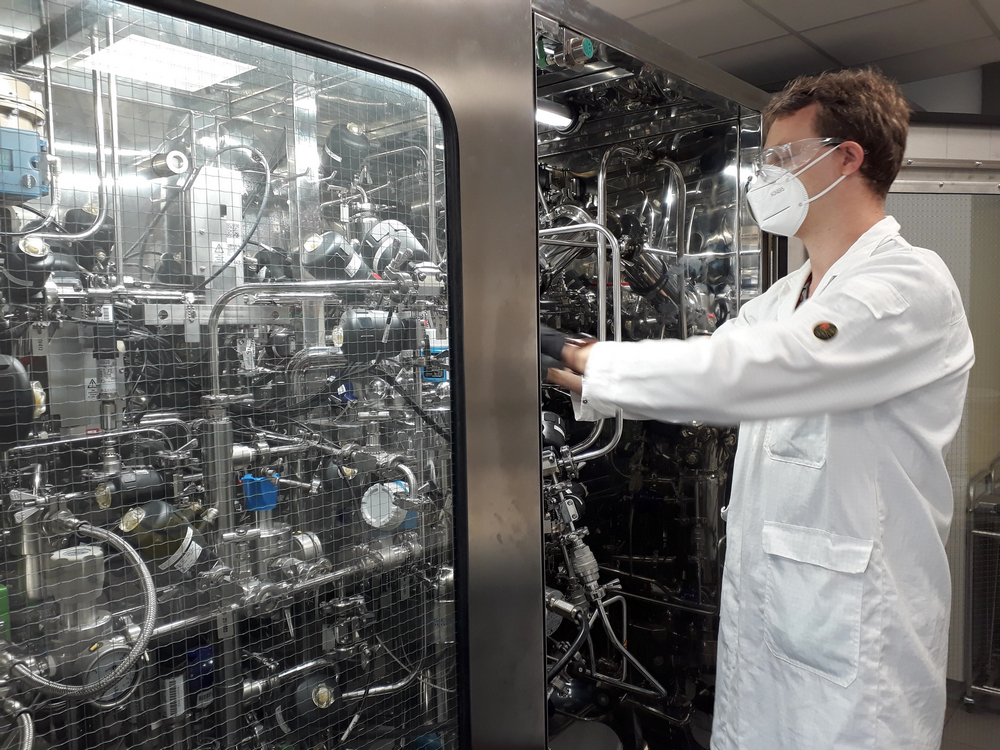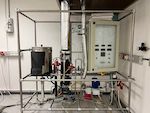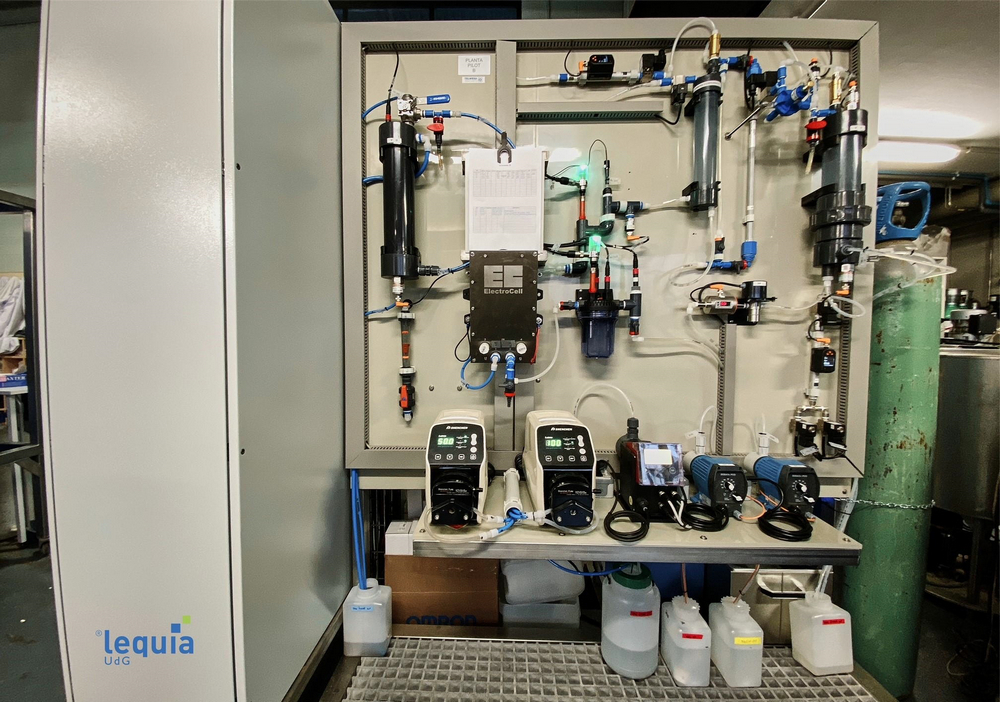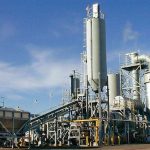
Scientist at research institute VITO preparing the high pressure fermenter Source: VITO
 Unique equipment for biotechnological capture and conversion of CO2 into chemical building blocks developed in the BioRECO2VER project
Unique equipment for biotechnological capture and conversion of CO2 into chemical building blocks developed in the BioRECO2VER project

Pilot scale absorbtion and desorption plant at the Technical Univeristy Lulea. Source: LTU
CO2 as renewable carbon source
Carbon is the main element in numerous materials used in industrial processes and in our daily lives. It is currently mostly provided from fossil sources. But what if carbon could be used directly from CO2 emissions? Biotechnology shows particularly great potential for the eco- effective conversion of climate-damaging CO2 emissions into valuable basic chemicals. A consortium of 12 partners investigated this pathway in the EU-funded BioRECO2VER project, examining the conversion of CO2 emissions from refineries and the cement industry into the chemical building blocks isobutene (C4H8) and lactate (C2H6O3).
Innovative chemo-enzymatic concept for CO2 Capture
Project partner Luleå University of Technology (LTU) focused on the first process step of capturing and concentrating CO2 from industrial point sources. Their team developed a hybrid chemo-enzymatic process consisting of a novel solvent blend and an ultra-stable carbonic anhydrase (CA) enzyme. The solvent blend included an amino acid ionic liquid and a tertiary amine and displayed a good compromise between enzyme compatibility, absorption rate, capacity and desorption potential. In addition, LTU generated ultra-stable enzyme mutants that showed 50% increased resistance to selected flue gas inhibitors compared to the original CA.
This 3-component CO2 capture process was scaled up in a pilot rig, and the set-up further used for real off gas pre-treatment in the project.
Two unique pilots for biotechnological CO2 Conversion/Utilization
The biotechnological conversion of (captured) CO2 and the co-substrate hydrogen by microorganisms poses technical and economic challenges because it takes place in the liquid phase and the substrates are gases which are poorly soluble. The BioRECO2VER project investigated two approaches to address this: fermentation under elevated pressure and bio- electrochemistry with in situ production of hydrogen.
Pressurized fermenter
Project coordinator VITO designed a flexible and multifunctional high-pressure fermenter, customized for research activities with advanced online sensors, monitoring and control, and also including a membrane filtration unit to achieve high concentrations of the microbial biocatalysts. The set-up was broadly tested in the BioRECO2VER project both with pure CO2 and CO2-rich off-gases but can also be used for investigations involving other poorly soluble gases, such as methane, oxygen, or synthesis gas. Pressures up to 10 bar can be applied.
First solely CO2-based bio-electrochemical platform

First BES-platform at the university of Girona, Spain. Source: UdG
University of Girona designed and tested a bio-electrochemical platform that is unique in the world. The key differentiators of the pilot plant are:
- Two parallel lines to test engineered strains and bio-electrochemical systems
- Fully automated pilot plant capable to control key operational parameters (pCO2, pO2, pH2, pH, Temperature) to intensify the process performance
- Solid-liquid separation unit (membrane) to recover the planktonic cells and return them into the bio-electrochemical systems.
A video of the pilot may be watched below.
This unique infrastructure will be used beyond the project to support further research and development activities in the broad area of CO2 capture and conversion.
The BioRECO2VER project received funding from the European Union’s Horizon 2020 research and innovation program under grant agreement number 760431.
nova-Institute is a private and independent research institute, founded in 1994; nova offers research and consultancy with a focus on the transition of the chemical and material industry to renewable carbon: How to substitute fossil carbon with biomass, direct CO2 utilisation and recycling. We offer our unique understanding to support the transition of your business into a climate neutral future. nova-Institute has more than 40 employees.



